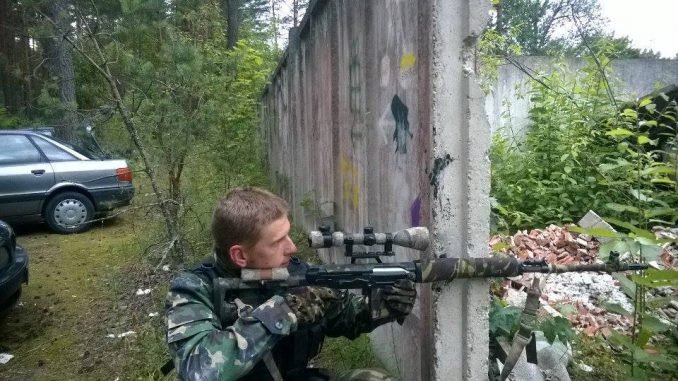
The panel discussed the actions of the police during the operation, in which the police anti-terrorist operations unit ARAS was called in to detain the 12 men.
According to the Lithuanian Police Department, the men each had several airsoft guns, which look like real guns, and some of them wore camouflage clothing.
Darius Jauniskis, director of the State Security Department, said that it was the “typical” uniform and weapons of Russian paratroopers.
“We have been saying since 2015 that airsoft clubs pose a certain threat. It has been said publicly that some of these members have been to Kaliningrad and Russia,” he told BNS after the meeting.
The department said in its National Security Threat Assessment report in 2015 that Lithuanian airsoft clubs had participated in a tournament in the Russian exclave of Kaliningrad, where they were taught military tactics used by the Russian army.
According to the intelligence report, members of these unnamed clubs “simulated tactics of Russia’s special forces and trained together with Russian and Belarusian airsoft teams”.
“During such events, members of airsoft clubs learn the Russian army’s military tactics, and the skills can be used in real military action together with the Russian armed forces,” it reads.
Bakas underlined the need for ensuring both public security and the security of airsoft enthusiasts, most of whom have nothing to do with activities unfriendly to Lithuania.

Be the first to comment